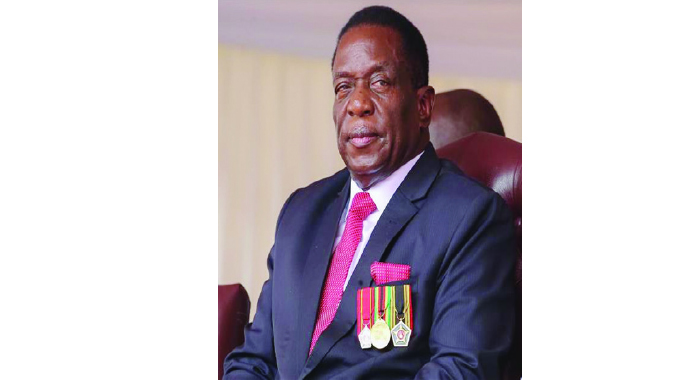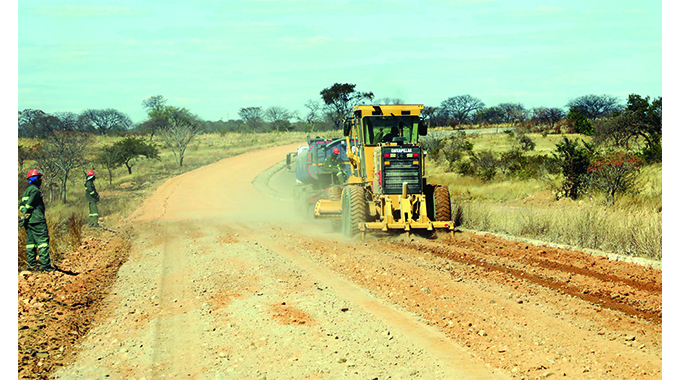COMMENT: Local lockdowns to balance health and business

When Kwekwe recorded a sharp increase in Covid-19 cases last month amid fears of the highly virulent Indian variant, the Government responded swiftly by putting the city under a localised lockdown.
By that designation, Kwekwe became the first local area in the country to be placed under that restriction.
A few weeks later when cases rose in areas in Mashonaland West such as Karoi, Makonde and Mhangura, the Government locked down the areas as well.
This approach reminds us of the decision by the Chinese government on 23 January 2020 to impose a lockdown in Wuhan city and others in Hubei Province in an effort to contain the spread of Covid-19. The first Covid-19 case was reported in that city. China was largely successful in containing the disease from spreading out of Wuhan to other places in that huge, populous nation.
Back home this week, the Government added more places under localised lockdowns – three clinical districts in Bulawayo, Mount Dawrin in Mashonaland Central, Chiredzi in Masvingo and others. This followed a resurgence of cases of coronavirus infection in the specified areas.
We feel that this nuanced approach – locking down smaller zones identified as Covid-19 hotspots instead of locking down the whole country – is the best. The approach seeks to strike a balance between controlling the disease in one geographical zone while at the same time, not unduly disrupting the entire economy with a national lockdown.
“Localised lockdown is a management tool meant to control the geographical spread of viruses and there is therefore, no reason for people to panic,” Deputy Minister of Health and Child Care Dr John Mangwiro explained recently.
“If the virus is detected, the best way is to contain it in that particular area without risking a spike in infections. That is why people’s movements are being restricted in those areas so as to minimise the spread of the virus into other districts.”
Clinical districts now under localised lockdown in Bulawayo are Nkulumane, Emakhandeni and northern suburbs.
Suburbs covered by the Nkulumane clinical district include Nkulumane, Pelandaba, Sizinda, Nketa, Emganwini and Barham Green.
Emakhandeni clinical district covers Cowdray Park, Njube, Luveve, Magwegwe suburbs, Pumula suburbs and Emakhandeni. The northern suburbs include Mpopoma, Mzilikazi, Nguboyenja, Makokoba and the city centre.
Most of us will remember how the economy suffered under the first hard national lockdown between March and October last year. Companies in non-essential sectors had to close; hundreds of people lost jobs. Emotional stress triggered by income losses that followed job losses spiked nationally, some of it manifesting in an increase in domestic violence.
Covid-19 is still with us and cases have been increasing since the onset of winter a few weeks ago but the increases have been concentrated in some areas and not others. This demands a proportionate response but none of us wants a countrywide lockdown.
We urge the Government to maintain that measured approach to managing Covid-19 while boosting law enforcement to ensure compliance. However, if the situation gets out of control – which we believe will not be the case if the localised lockdowns are strictly upheld – a tighter, national lockdown will be inevitable.
Apart from the need to protect the economy, another factor that must have motivated the Government to consider localised lockdown as workable is the ongoing vaccination programme. More than one million people have been vaccinated against Covid-19. We await delivery of 500 000 more doses on Saturday and thereafter two million before the end of this month.
As we have always said since February, let all of us get inoculated against this disease.
But we must be quick to stress that citizens in the specified areas in Bulawayo and elsewhere around the country will help prevent a national lockdown, and the negative socio-economic consequences it brings, if they strictly adhere to preventive measures in their communities.
They must avoid crowds. When they are in a supermarket, queuing at money transfer agents or at the fresh produce market, they must maintain social distance. They must know that the only gatherings permitted are funerals with numbers to be strictly 30 people and fewer.
No weddings, no physical church gatherings, no workshops and so on. They must not forget to wear their face masks appropriately, covering their noses and mouths. They must also not forget to wash their hands in soapy water or use hand sanitiser with the prescribed alcohol content.
Businesses and other organisations were recently ordered to decongest themselves and upgrade their capacities to transact virtually. That is the new way of doing business.










Comments